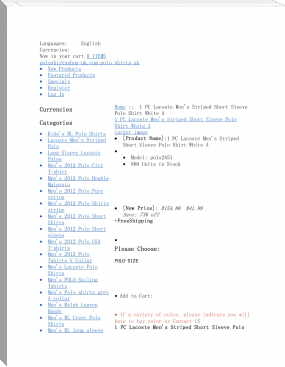The Ghost Kings, H. Rider Haggard [best thriller books to read TXT] 📗

- Author: H. Rider Haggard
Book online «The Ghost Kings, H. Rider Haggard [best thriller books to read TXT] 📗». Author H. Rider Haggard
"You have been through a lot," he went on, slowly; "you are tired out, and don't know what you say, and you believe that I killed the old people, which I didn't, and, of course, that has set you against me. Now, I don't want to be rough, or to hurry you, especially as I have plenty of things to see about before we are married. So I give you three days. If you don't change your mind at the end of them, the young man dies, that's all, and afterwards we will see whether or no you are in my power. Oh! you needn't stare. I've gone too far to turn back, and I don't mind a few extra risks. Meanwhile make yourself easy, dear Richard shall be well looked after, and I won't bother you with any more love-making. That can wait."
Rachel rose from her seat and pointed with the spear to the door in the wall.
"Go," she said.
"All right, I am going, Rachel. Good-bye till this time three days. I hope my women will make you as comfortable as possible in this rough place. Ask them for anything you want. Good-bye, Rachel," and he went, bolting the wall door behind him.
CHAPTER XVI(THE THREE DAYS)
He was gone, his presence had ceased to poison the air, and, the long strain over, Rachel gave a gasp of relief. Then she sat down upon the bench and began to think. Her position, and that of Richard, was desperate; it seemed scarcely possible that they could escape with their lives, for if he died, she would die also--as to that she was quite determined. But at least they had three days, and who could say what would happen in three days? For instance, they might escape somehow, the Providence in which she believed might intervene, or the Zulus might come to seek her, if they only knew where she was gone. Oh! why had she not brought a guard of them with her to Ramah? At least they would never have insulted her, and Ishmael's shrift would have been short.
She wondered why he had given her three days. A reason suggested itself to her mind. Perhaps he believed what she had told him--that she was as safe from him as the eagle in the air--and was sure that the only way to snare her was by using Richard as a lure, in other words, by threatening to murder him. It is true that he could have brought the matter to a head at once, but then, if she remained obdurate, he must carry out his threat, and this, she believed, he was afraid to do unless it was absolutely forced upon him. Doubtless he had reflected that in three days she might weaken and give way.
Whilst Rachel brooded thus the door in the wall opened, and through it came three women, who saluted her respectfully, and announced that they were sent to clean the hut, and attend upon her. Rachel took stock of them carefully. Two of them were young, ordinary, good-looking Kaffirs, but the third was between thirty and forty, and no longer attractive, having become old early, as natives do. Moreover, her face was sad and sympathetic. Rachel asked her her name. She answered that it was Mami, and that they were all the wives of Ibubesi.
The women went about their duties in the hut in silence, and a while afterwards announced that all was made clean, and that they would return presently with food. Rachel answered that it was not necessary that three of them should be put to so much trouble. It would be enough if Mami came. She desired to be waited on by Mami alone, her sisters need not come any more.
They all three saluted again, and said that she should be obeyed; the two younger ones with alacrity. To Rachel it was evident that these women were much afraid of her. Her reputation had reached them, and they shrank from this task of attending on the mighty Inkosazana of the Zulus in her cage, not knowing what evil it might bring upon them.
An hour later the door was unbolted, and Mami reappeared with the food that had been very carefully cooked. Rachel ate of it, for she was determined to grow strong again, she who might need all her strength, and while she ate talked to Mami, who squatted on the ground before her. Soon she drew her story from her. The woman was Ishmael's first Kaffir wife, but he had never cared for her, and against all law and custom she was discarded, and made a slave. Even some of her cattle had been taken from her and given to other wives. So her heart was bitter against Ishmael, and she said that although once she was proud to be the wife of a white man, now she wished that she had never seen his face.
Here, then, was material ready to Rachel's hand, but she did not press the matter too far at this time. Only she said that she wished Mami to stay with her after the evening meal, and to sleep in her hut, as she was not accustomed to be alone at night. Mami replied that she would do so gladly if Ibubesi allowed it, although she was not worthy of such honour.
As it happened, Ishmael did allow it, for he thought that he could trust this old drudge, and told her to act as a spy upon Rachel, and report to him all that she said or did. Very soon Rachel found this out and warned her against obeying him, since if she did so it would come to her knowledge, and then great evil would fall on one who betrayed the words of the Inkosazana.
Mami answered that she knew it, and that Rachel need not be afraid. Any tale would do for Ishmael, whom she hated. Then, saying little herself, Rachel encouraged her to talk, which Mami did freely. So she heard some news. She learned, for instance, that the whole town of Mafooti, whereof Ibubesi was chief, which counted some sixty or seventy heads of families, was much disturbed by the events of the last few days. They did not like the Inkosazana being brought there, thinking that where she went the Zulus would follow, and as they were of Zulu blood themselves, they knew what that meant. They were alarmed at the deaths of the white sky-doctor, who was called Shouter, and his wife, with which Ibubesi had something to do, for they feared lest they should be held responsible for their blood. They objected to the imprisonment of the white chief, Dario, among them, because "he had hurt no one, and was under the mantle of the Inkosazana, who was a spirit, not a woman," and who had warned them that if any harm came to her or to him, death would be their reward. They were angry, also, because Ibubesi had killed one of them in some quarrel about the chief Dario at Ramah. Still, they were so much afraid of Ibubesi, who was a great tyrant, that they did not dare to interfere with him and his plans, lest they should lose their cattle, or, perhaps, their lives. So they did not know what to do. As for Ibubesi himself, he was actively engaged in strengthening the fortifications of the place; even the old people and the children were being forced to carry stones to the walls, from which it was evident that he feared some attack.
When Rachel had gathered this and much other information concerning Ishmael's past and habits, she asked Mami if she could convey a message from her to Richard. The woman answered that she would try on the following morning. So Rachel told her to say that she was safe and well, but that he must watch his footsteps, as both of them were in great danger. More she did not dare to say, fearing lest Mami should betray her, or be beaten till she confessed everything. Then, as there was nothing more to be done, Rachel lay down and slept as best she could.
The next day passed in much the same fashion as the first had done. For the most of it Rachel sat under the tree in the walled yard, companioned only by her terrible thoughts and fears. Nobody came near her, and nothing happened. In the morning Mami went out, and returning at the dinner hour, told Rachel that she had seen Ishmael, who had questioned her closely as to what the Inkosazana had done and said, to which she replied that she had only eaten and slept, and invoked the spirits on her knees. As for words, none had passed her lips. She had not been able to get near the huts where Dario was in prison, as Ishmael was watching her. For the rest, the work of fortification went on without cease, even Ishmael's own wives being employed thereon.
In the afternoon Mami went out again and did not return till night, when she had much to tell. To begin with, while the sentry was dozing, being wearied with carrying stones to the wall, she had managed to approach the fence of the hut where Richard was confined. She said that he was walking up and down inside the fence with his hands tied, and she had spoken to him through a crack in the reeds, and given him Rachel's message. He listened eagerly, and bade her tell the Inkosazana that he thanked her for her words; that he, too, was strong and well, though much troubled in mind, but the future was in the hands of the Heavens, and that she must keep a high heart. Just then the sentry woke up, so Mami could not wait to hear any more.
That evening, however, a lad who had been sent out of the town to drive in some cattle, had returned with the tidings which she, Mami, heard him deliver to Ibubesi with her own ears.
He said that whilst he was collecting the oxen, a ringed Zulu came upon him, who from his manner and bearing he took to be a great chief, although he was alone, and seemed to be tired with walking. The Zulu has asked him if it were true that the Inkosazana and the white chief Dario were in prison at Mafooti, and when he hesitated about replying, threatened him with his assegai, saying that he would cut out his heart unless he told the truth. The Zulu replied that he knew it, as he had just come from Ramah, where he had seen strange things, and spoken with a man of Ibubesi's, whom he found dying in the garden of the house. Then he had given him this message:
"Say to Ibubesi that I know all his wickedness, and that if the Inkosazana is harmed, or if drop of the blood of the white chief, Dario, is shed, I will destroy him and everything that lives in his town down to the rats. Say to him also that he





Comments (0)